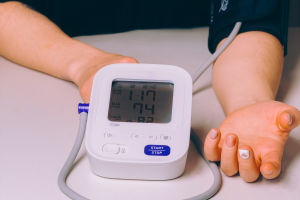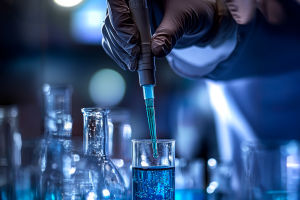Cholesterol is a type of lipid essential for various body functions, including building cell membranes and producing hormones.
However, when cholesterol levels exceed healthy limits, it can lead to serious cardiovascular problems.
High cholesterol, particularly the accumulation of low-density lipoprotein (LDL) cholesterol, is a significant risk factor for heart disease and other cardiovascular issues. This article delves into the relationship between high cholesterol and its impact on the arteries and heart, highlighting the latest medical findings and treatment strategies.
Understanding Cholesterol and Its Types
Cholesterol is transported in the bloodstream by two types of lipoproteins: low-density lipoprotein (LDL, often referred to as "bad cholesterol") and high-density lipoprotein (HDL, or "good cholesterol"). LDL carries cholesterol to the arteries, where it can accumulate and form plaques, while HDL helps remove excess cholesterol from the arteries and transports it back to the liver for disposal.
An imbalance between LDL and HDL cholesterol—specifically when LDL levels are high and HDL levels are low—can lead to cholesterol buildup in the arterial walls, a condition known as atherosclerosis. This process narrows and stiffens the arteries, making it difficult for blood to flow freely.
The Impact of High Cholesterol on the Arteries
The arteries are responsible for transporting oxygen-rich blood from the heart to various parts of the body. When high cholesterol levels are present, the buildup of LDL cholesterol leads to the formation of plaques within the arterial walls. These plaques consist of cholesterol, fat, and other substances, and as they accumulate, they gradually narrow the arteries, restricting blood flow.
Dr. Jason Mitchell, a prominent cardiologist, emphasizes that the process of plaque formation is gradual but insidious. "Over time, these plaques can become unstable, and when they rupture, they may form blood clots that block blood flow to vital organs, potentially leading to heart attacks or other serious complications."
Plaque buildup isn't confined to the coronary arteries, which supply the heart; it can also affect arteries in the brain, kidneys, and other organs, increasing the risk of atherosclerotic diseases in these areas.
High Cholesterol and Heart Disease: A Major Concern
High cholesterol is a major contributor to coronary artery disease (CAD), a condition in which plaques build up in the coronary arteries, which supply blood to the heart muscle. As these arteries narrow, the heart receives less oxygen-rich blood, which can cause chest pain, commonly known as angina.
In severe cases, the plaques can rupture, resulting in blood clots that completely block blood flow to the heart. This blockage can lead to a heart attack, in which part of the heart muscle is damaged or dies due to a lack of oxygen. High cholesterol is a key player in the development of CAD, though other factors such as high blood pressure, smoking, and diabetes also contribute to the condition.
Dr. Samuel Harris, a cardiovascular medicine expert, explains, "A heart attack caused by the rupture of cholesterol-related plaques is a major medical emergency. Quick intervention is essential to minimize heart muscle damage and improve patient outcomes."
How High Cholesterol Affects Blood Flow and Heart Function
As plaque builds up in the arteries, the heart has to work harder to pump blood through these narrowed pathways. This increased workload can lead to elevated blood pressure, further exacerbating damage to the cardiovascular system. Over time, high cholesterol can contribute to heart failure, a condition in which the heart becomes weakened and unable to pump blood efficiently.
Heart failure due to atherosclerosis and high cholesterol can cause symptoms such as fatigue, shortness of breath, and swelling in the legs and ankles. Additionally, patients with high cholesterol are at a higher risk of arrhythmias, or irregular heartbeats, which can increase the likelihood of sudden cardiac events.
Current Treatments and Management Strategies
Managing high cholesterol involves a combination of lifestyle changes, medications, and regular monitoring to lower LDL cholesterol levels and raise HDL levels, thereby reducing the risk of cardiovascular events.
Statins: Statins are the most commonly prescribed medication for lowering LDL cholesterol. These drugs inhibit an enzyme in the liver that produces cholesterol. Dr. Harris notes, "Statins have been shown to effectively reduce the risk of heart attacks and other cardiovascular events in patients with high cholesterol."
Lifestyle Changes: A heart-healthy diet, regular physical activity, weight management, and smoking cessation are all vital for managing high cholesterol. Reducing intake of saturated fats and trans fats, increasing fiber intake, and consuming more heart-healthy foods like fruits, vegetables, and fish can help lower cholesterol levels.
PCSK9 Inhibitors: For patients who do not achieve sufficient cholesterol control with statins alone, newer treatments like PCSK9 inhibitors may be considered. These injectable medications help the liver remove LDL cholesterol from the bloodstream more effectively.
Bile Acid Sequestrants: These medications bind to bile acids in the intestines, preventing their reabsorption and lowering cholesterol levels. While not as commonly used as statins, bile acid sequestrants may be an option for certain patients.
High cholesterol remains a major risk factor for cardiovascular diseases, including heart disease. The accumulation of cholesterol in the arteries can significantly impact blood flow and heart function, leading to serious health complications. However, with early detection, proper management, and the latest treatment options, patients can effectively manage their cholesterol levels and reduce their risk of life-threatening events.
A comprehensive approach to managing cholesterol—through lifestyle modifications and, when necessary, medications—is essential to protecting heart health. Regular check-ups with healthcare providers are crucial for those at risk, as timely intervention can improve long-term outcomes and prevent the onset of severe cardiovascular conditions.


